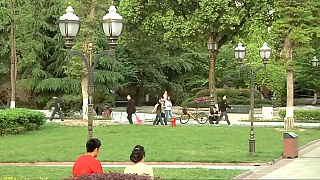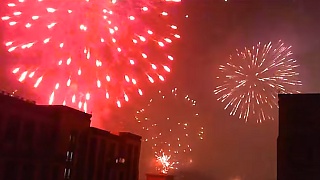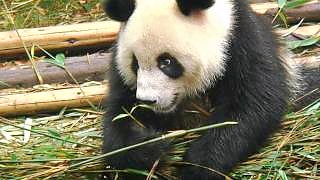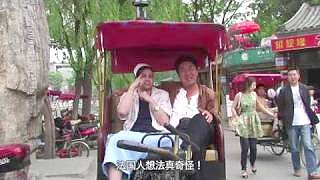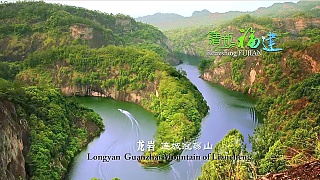ChengDu: 20 Kid-Friendly Places to Visit
- Panda Base (成都大熊猫繁育研究基地 Chéngdū Dàxióngmāo Fányù Yánjiū Jīdì): Giant panda breeding and research center with exhibits and educational programs.
- Chengdu Research Base of Giant Panda Breeding (成都大熊猫繁育研究基地 Chéngdū Dàxióngmāo Fányù Yánjiū Jīdì): Panda reserve with habitats, breeding facilities, and conservation efforts.
- Chengdu Happy Valley (成都欢乐谷 Chéngdū Huānlègǔ): Amusement park with rides, attractions, and entertainment for all ages.
- Chengdu Zoo (成都动物园 Chéngdū Dòngwùyuán): Zoo with diverse animal exhibits, shows, and educational programs.
- Sichuan Science and Technology Museum (四川科技馆 Sìchuān Kējìguǎn): Interactive science museum with exhibits, experiments, and demonstrations.
- Chengdu Eastern Suburb Memory (成都东郊记忆 Chéngdū Dōngjiāo Jìyì): Cultural theme park with traditional architecture, performances, and activities.
- Chengdu Culture Park (成都文化公园 Chéngdū Wénhuà Gōngyuán): Park with historic sites, gardens, and cultural exhibitions.
- Chengdu Haichang Polar Ocean World (成都海昌极地海洋世界 Chéngdū Hǎichāng Jídì Hǎiyáng Shìjiè): Polar ocean park with marine life exhibits, shows, and activities.
- Happy Valley Water Park (欢乐谷水上乐园 Huānlègǔ Shuǐshàng Lèyuán): Water park with slides, pools, and water attractions for families.
- Chengdu Botanical Garden (成都植物园 Chéngdū Zhíwùyuán): Botanical garden with plant collections, greenhouses, and scenic landscapes.
- Chengdu Teddy Bear Museum (成都泰迪熊博物馆 Chéngdū Tàidíxióng Bówùguǎn): Museum with teddy bear exhibits, collections, and interactive displays.
- Chengdu Anren Ancient Town (成都安仁古镇 Chéngdū Ānrén Gǔzhèn): Historic town with preserved architecture, museums, and cultural heritage.
- Chengdu Shunxing Old Teahouse (成都顺兴老茶馆 Chéngdū Shùnxìng Lǎo Cháguǎn): Traditional teahouse with Sichuan opera performances, tea ceremonies, and snacks.
- Chengdu Anren Ancient Town (成都安仁古镇 Chéngdū Ānrén Gǔzhèn): Historic town with preserved architecture, museums, and cultural heritage.
- Chengdu Happy Valley (成都欢乐谷 Chéngdū Huānlègǔ): Amusement park with rides, attractions, and entertainment for all ages.
- Chengdu Zoo (成都动物园 Chéngdū Dòngwùyuán): Zoo with diverse animal exhibits, shows, and educational programs.
- Chengdu Culture Park (成都文化公园 Chéngdū Wénhuà Gōngyuán): Park with historic sites, gardens, and cultural exhibitions.
- Chengdu Eastern Suburb Memory (成都东郊记忆 Chéngdū Dōngjiāo Jìyì): Cultural theme park with traditional architecture, performances, and activities.
- Chengdu Happy Valley (成都欢乐谷 Chéngdū Huānlègǔ): Amusement park with rides, attractions, and entertainment for all ages.
- Chengdu Teddy Bear Museum (成都泰迪熊博物馆 Chéngdū Tàidíxióng Bówùguǎn): Museum with teddy bear exhibits, collections, and interactive displays.
ChengDu: 30 More Places to Visit
- Chengdu Wuhou Shrine (成都武侯祠 Chéngdū Wǔhóu Cí): Temple and museum dedicated to Zhuge Liang, a famous military strategist.
- Wenshu Monastery (成都文殊院 Chéngdū Wénshū Yuàn): Buddhist monastery with historic buildings, gardens, and tea houses.
- Chengdu Jinsha Site Museum (成都金沙遗址博物馆 Chéngdū Jīnshā Yízhǐ Bówùguǎn): Museum with exhibits on the Jinsha archaeological site and ancient artifacts.
- Chengdu Wide and Narrow Alley (宽窄巷子 Kuānzhǎi Xiàngzi): Historic area with traditional architecture, shops, and street food.
- Chengdu Du Fu Thatched Cottage (成都杜甫草堂 Chéngdū Dù Fǔ Cǎotáng): Museum and park dedicated to the Tang dynasty poet Du Fu.
- Chengdu Tianfu Square (成都天府广场 Chéngdū Tiānfǔ Guǎngchǎng): Central square with landmarks, sculptures, and cultural events.
- Chengdu Sichuan Opera Museum (成都川剧博物馆 Chéngdū Chuānjù Bówùguǎn): Museum with exhibits on Sichuan opera costumes, masks, and performances.
- Chengdu Huanhuaxi Park (成都浣花溪公园 Chéngdū Huànhuāxī Gōngyuán): Park with rivers, bridges, and scenic landscapes for leisure and relaxation.
- Chengdu Jinli Ancient Street (成都锦里古街 Chéngdū Jǐnlǐ Gǔjiē): Historic street with traditional architecture, shops, and street vendors.
- Chengdu Happy Valley (成都欢乐谷 Chéngdū Huānlègǔ): Amusement park with rides, attractions, and entertainment for all ages.
- Chengdu Zoo (成都动物园 Chéngdū Dòngwùyuán): Zoo with diverse animal exhibits, shows, and educational programs.
- Chengdu Culture Park (成都文化公园 Chéngdū Wénhuà Gōngyuán): Park with historic sites, gardens, and cultural exhibitions.
- Chengdu Eastern Suburb Memory (成都东郊记忆 Chéngdū Dōngjiāo Jìyì): Cultural theme park with traditional architecture, performances, and activities.
- Chengdu Happy Valley (成都欢乐谷 Chéngdū Huānlègǔ): Amusement park with rides, attractions, and entertainment for all ages.
- Chengdu Teddy Bear Museum (成都泰迪熊博物馆 Chéngdū Tàidíxióng Bówùguǎn): Museum with teddy bear exhibits, collections, and interactive displays.
- Chengdu Anren Ancient Town (成都安仁古镇 Chéngdū Ānrén Gǔzhèn): Historic town with preserved architecture, museums, and cultural heritage.
- Chengdu Shunxing Old Teahouse (成都顺兴老茶馆 Chéngdū Shùnxìng Lǎo Cháguǎn): Traditional teahouse with Sichuan opera performances, tea ceremonies, and snacks.
- Chengdu Anren Ancient Town (成都安仁古镇 Chéngdū Ānrén Gǔzhèn): Historic town with preserved architecture, museums, and cultural heritage.
- Chengdu Happy Valley (成都欢乐谷 Chéngdū Huānlègǔ): Amusement park with rides, attractions, and entertainment for all ages.
- Chengdu Teddy Bear Museum (成都泰迪熊博物馆 Chéngdū Tàidíxióng Bówùguǎn): Museum with teddy bear exhibits, collections, and interactive displays.
Chengdu, the capital of Sichuan Province in southwest China, is a vibrant city known for its rich history, spicy cuisine, and relaxed lifestyle. Here's a guide for tourists visiting Chengdu:
Cultural and Historical Attractions:
Chengdu Research Base of Giant Panda Breeding: One of the most popular attractions in Chengdu, this conservation center allows visitors to observe giant pandas in a semi-natural habitat.
Jinli Ancient Street: Located next to Wuhou Shrine, Jinli Ancient Street is a bustling pedestrian street lined with traditional Sichuan-style buildings, shops, teahouses, and street food stalls.
Wuhou Shrine: Dedicated to Zhuge Liang, a famous military strategist of the Three Kingdoms period, and Liu Bei, the emperor of the Shu Kingdom, Wuhou Shrine is a historic complex with beautiful gardens and ancient architecture.
Du Fu Thatched Cottage: This museum and park commemorates the Tang Dynasty poet Du Fu and features reconstructions of his former residence and gardens.
Culinary Delights:
Sichuan Cuisine: Chengdu is renowned for its spicy and flavorful Sichuan cuisine. Don't miss the opportunity to try local specialties like mapo tofu, hot pot, and dandan noodles.
Hot Pot: Chengdu's hot pot is famous nationwide. Enjoy a communal dining experience where you cook various meats, vegetables, and other ingredients in a bubbling pot of spicy broth.
Natural Beauty:
Mount Qingcheng: Located about an hour's drive from Chengdu, Mount Qingcheng is one of the birthplaces of Taoism and offers picturesque hiking trails, ancient temples, and serene scenery.
Jiuzhaigou Valley: While it's a bit further from Chengdu (requiring a flight or long bus ride), Jiuzhaigou Valley is a UNESCO World Heritage Site known for its stunning turquoise lakes, waterfalls, and colorful forests.
Modern Attractions:
Chengdu Research Base of Tianfu Giant Panda Breeding: In addition to the Giant Panda Breeding Base, this newer facility focuses on breeding and research for giant pandas and other endangered species.
Sichuan Opera: Experience traditional Sichuan opera performances featuring colorful costumes, face-changing (bian lian) techniques, acrobatics, and puppet shows.
Practical Tips:
Transportation: Chengdu has an efficient public transportation system, including a subway and buses. Taxis and ride-hailing services like DiDi are also readily available.
Weather: Chengdu has a humid subtropical climate with mild winters and hot, humid summers. It's advisable to check the weather forecast before your trip and pack accordingly.
Language: While Mandarin is the official language, the local dialect in Chengdu is Sichuanese. English may not be widely spoken outside of tourist areas, so consider learning a few basic phrases or carrying a translation app.
Chengdu offers a blend of cultural heritage, culinary delights, and natural beauty, making it an enticing destination for travelers seeking an authentic Chinese experience. Whether you're exploring historic sites, savoring spicy cuisine, or marveling at the region's natural wonders, Chengdu is sure to leave a lasting impression.

 50 places to visit in ChengDu
50 places to visit in ChengDu